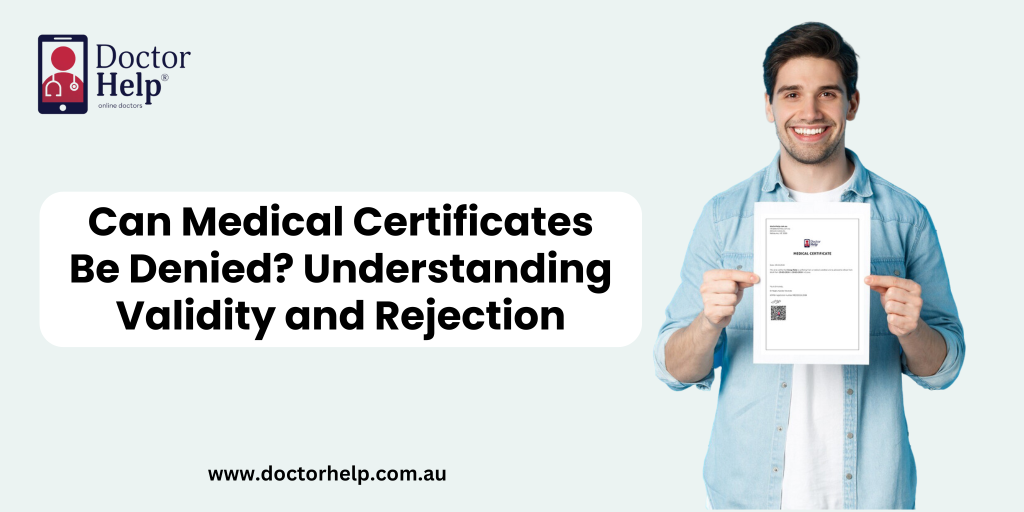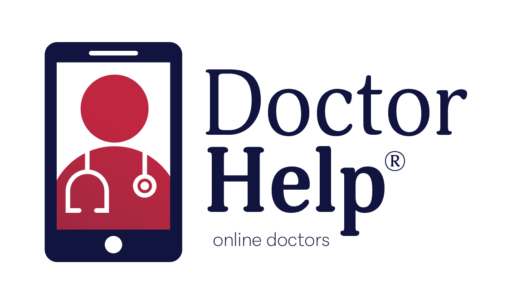Understanding Medical Certificates in Australia
When discussing medical certificates, the most crucial question that comes to mind is whether it is appropriate or possible to challenge a medical certificate, and if so, whether the certificate can be denied. We’ve outlined all you need to know about this below.
Table of Contents
- What is a Medical Certificate?
- What law regulates Medical Certificates in Australia?
- What is an Online Medical Certificate?
- Online Medical Certificate Validity
- Can Medical Certificates Be Denied?
- Conclusion
What is a Medical Certificates?
Medical certificates provide employees with an official document issued by a Registered Health Practitioner after a consultation, if appropriate, that can be given to employers when sick leave is granted.
What law regulates Medical Certificates in Australia?
The Fair Work Act (2009) regulates sick leave notes and certificates for medical conditions. This is a significant piece of regulation that:
- Offers numerous workplace rights to employees, while
- Also giving businesses helpful advice on matters about employees in the workplace.
What is an Online Medical Certificate?
In Australia, Online medical certificates are legitimate documentation produced by licensed medical professionals that attest to a patient’s sick leave requirement. Registered medical professionals may issue an online medical certificate, sometimes referred to as an online doctor certificate or sick note. These certifications are essential for giving workers the paperwork they need to take sick or carer leave, whether to verify a sickness, evaluate fitness, or track recovery from a medical condition.
Online Medical Certificate Validity
Online medical certifications are lawful and valid, as long as a certified Australian physician issues them through a trustworthy and secure online platform. In Australia, telehealth has become a popular and practical way of obtaining medical care in recent years.
Necessary details for validity:
The Australian medical body’s guidelines further outline the information required for validity. The following are the important components commonly found in medical certificates:
- Patient details: full name, age, date of birth, address.
- Doctor’s Information: Complete details of attending physician or nurse, provider number or medical registration number, healthcare provider or platform contact information.
- Date of consultation, and any other pertinent dates.
- Signature of a physician or nurse practitioner.
Can Medical Certificates Be Denied?
According to a recent ruling by the Australia Fair Work Commission in Gadzikwa v. Australian Government Department of Human Services, [2018] FWC 4878, employers have the right to deny workers medical certificates. However, it is only in situations in which they are too ambiguous to uphold legal responsibilities.
If an employee submits certificates for a pattern of absences, this may be used as a justification to reject the certificate and take disciplinary action. If the certificate is missing any of the following components, it may also be used as a justification for displaying a fake certificate:
- If the employee filled out blank medical certificates to misrepresent their true health.
- If it does not cover the period of absence.
- If it looks to be an amended medical certificate.
- If the medical certificate is obtained from someone who is not a medical practitioner.
Conclusion
In the end, employers must take medical certifications at face value, but in some cases, they could be rejected as long as legal counsel has been consulted, and the employee has been fully informed of the procedure. Businesses should create a responsible and ethical procedure to verify that the medical certifications employees present are adequate to reduce any kind of disturbance to the job. It goes without saying that in a highly contentious area of law, knowledgeable legal counseling is vital.








